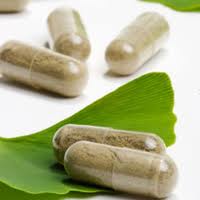 Considering that 1/3 of Americans take some kind of supplement, it is pretty scary to learn that the supplement industry in our country is not regulated…AT ALL. With no safety measures in place, the old saying “It may not help me but at least it won’t hurt me” really goes flying out the window. This means that it is really important to understand thoroughly what you are putting into your body.
Considering that 1/3 of Americans take some kind of supplement, it is pretty scary to learn that the supplement industry in our country is not regulated…AT ALL. With no safety measures in place, the old saying “It may not help me but at least it won’t hurt me” really goes flying out the window. This means that it is really important to understand thoroughly what you are putting into your body.
If you were to ask someone why they take supplements the standard answer would be that they are not getting enough of what they need from their diet. If you asked them what they felt was missing from their diet the answer would probably not be carbs, protein, fats or sugar but rather a lack of consumption of whole, unprocessed foods, in particular a lack of fruits and veggies. In this country we tend to eat many manmade items that we label as food yet these things are often so processed and synthetic that our body doesn’t identify with it as nourishment. Thus we need a way to fill the void.
 Deciding on a supplement can be very confusing at times, so recently I attended a seminar held by a local licensed dietitian who is a leader in her field in order to be more informed. She covered many topics but one of the most interesting parts of her discussion was her list of questions to ask yourself if you are considering a supplement. I would like to share this list with you below:
Deciding on a supplement can be very confusing at times, so recently I attended a seminar held by a local licensed dietitian who is a leader in her field in order to be more informed. She covered many topics but one of the most interesting parts of her discussion was her list of questions to ask yourself if you are considering a supplement. I would like to share this list with you below:
1. Ask yourself why you are considering the supplement in the first place? Is it because Uncle Bob said you should do it or is it because you are truly trying to achieve something nutritionally.
2. Ask yourself, “Do I need it?” Just because your friend needs it doesn’t mean that you necessarily do. If you are taking specific supplements that your particular body does not need there are times when you could be doing more harm than good.
3. Ask yourself what it is made of? Is it a manmade substance or does it come from nature. Is it comprised of isolated nutrients or is it derived from a whole food source.
4. Identify if the supplement is certified. Certification organizations don’t check for efficacy but they do certify for quality, cleanliness and good manufacturing practices. Typically these certifications are voluntary and many manufacturers don’t wish to be held to such stringent standards. Therefore if you see a certification on the label you know it is a clean product.
5. Identify if there is good, solid primary research on the product showing what it does in the body. Many products have secondary research which means that there are studies on the individual ingredients that are in the product. Primary research is done on the product itself.
Kelly DeVivo is a Wellness Coordinator with a company that produces a raw fruit and veggie concentrate for adults and children known as Juice Plus. For more information please visit www.giveyourbodygreens.com or contact Kelly at 239-293-0799.







